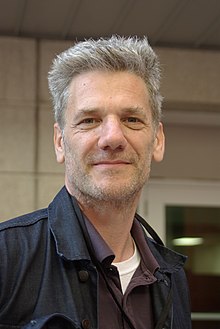
Jorge Francisco Isidoro Luis Borges Acevedo was an Argentine short-story writer, essayist, poet and translator regarded as a key figure in Spanish-language and international literature. His best-known books, Ficciones (transl. Fictions) and El Aleph, published in the 1940s, are collections of short stories exploring motifs such as dreams, labyrinths, chance, infinity, archives, mirrors, fictional writers and mythology. Borges's works have contributed to philosophical literature and the fantasy genre, and have had a major influence on the magic realist movement in 20th century Latin American literature.

Carlos Gardel was a French-born Argentine singer, songwriter, composer and actor, and the most prominent figure in the history of tango. He was one of the most influential interpreters of world popular music in the first half of the 20th century. Gardel is the most famous popular tango singer of all time and is recognized throughout the world. He was notable for his baritone voice and the dramatic phrasing of his lyrics. Together with lyricist and long-time collaborator Alfredo Le Pera, Gardel wrote several classic tangos.

Buenos Aires, officially the Autonomous City of Buenos Aires, is the capital and primate city of Argentina. The city is located on the western shore of the Río de la Plata, on South America's southeastern coast. "Buenos Aires" is Spanish for "fair winds" or "good airs". Buenos Aires is classified as an Alpha- global city, according to the Globalization and World Cities Research Network (GaWC) 2020 ranking.

Julio Florencio Cortázar was an Argentine, naturalised French novelist, short story writer, essayist, and translator. Known as one of the founders of the Latin American Boom, Cortázar influenced an entire generation of Spanish-speaking readers and writers in America and Europe.

The University of Buenos Aires is a public research university in Buenos Aires, Argentina. Established in 1821, it is the premier institution of higher learning in the country and one of the most prestigious universities of Ibero-America. It has educated 17 Argentine presidents, produced four of the country's five Nobel Prize laureates, and is responsible for approximately 40% of the country's research output. The QS World University Rankings currently ranks UBA at number 7 in the Spanish-speaking world.

Alberto Manguel is an Argentine-Canadian anthologist, translator, essayist, novelist, editor, and a former Director of the National Library of Argentina. He is the author of numerous non-fiction books such as The Dictionary of Imaginary Places, A History of Reading (1996), The Library at Night (2007) and Homer's Iliad and Odyssey: A Biography (2008); and novels such as News From a Foreign Country Came (1991). Though almost all of Manguel's books were written in English, two of his novels were written in Spanish, and El regreso has not yet been published in English. Manguel has also written film criticism such as Bride of Frankenstein (1997) and collections of essays such as Into the Looking Glass Wood (1998). In 2007, Manguel was selected to be that year's annual lecturer for the prestigious Massey Lectures. in 2021, he gave the Roger Lancelyn Green lecture to the Lewis Carroll Society on his love of the 'Alice' stories from Lewis Carroll.

Augusto de Campos is a Brazilian writer who was a founder of the Concrete poetry movement in Brazil. He is also a translator, music critic and visual artist.

Aníbal Domingo Fernández is an Argentine Justicialist Party politician, lawyer, and certified public accountant. Throughout his career, he has remained a close ally to the former Presidents Néstor Kirchner and Cristina Fernández de Kirchner. Since 2021, he has served as Argentina's Minister of Security, in the cabinet of President Alberto Fernández.
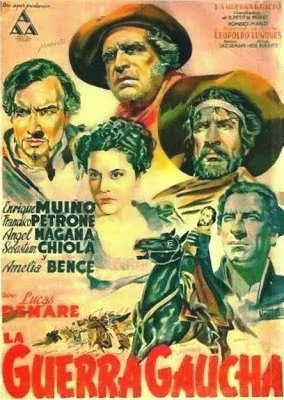
The Gaucho War is a 1942 Argentine historical drama and epic film directed by Lucas Demare and starring Enrique Muiño, Francisco Petrone, Ángel Magaña, and Amelia Bence. The film's script, written by Homero Manzi and Ulyses Petit de Murat, is based on the novel by Leopoldo Lugones published in 1905. The film premiered in Buenos Aires on November 20, 1942 and is considered by critics of Argentine cinema to be one of the most successful films in history. It won three Silver Condor awards, including Best Film, Best Director, and Best Adapted Screenplay, given by the Argentine Film Critics Association at the 1943 Argentine Film Critics Association Awards for the best films and performances of the previous year.

Eduardo Montes-Bradley is an Argentine-born American filmmaker best known for his documentaries Evita, Rita Dove: An American Poet, and Harto The Borges. His most recent documentaries are Black Fiddlers and Daniel Chester French: American Sculptor

Argentina, officially the Argentine Republic, is a country in the southern half of South America. Argentina covers an area of 2,780,400 km2 (1,073,500 sq mi), making it the second-largest country in South America after Brazil, the fourth-largest country in the Americas, and the eighth-largest country in the world. It shares the bulk of the Southern Cone with Chile to the west, and is also bordered by Bolivia and Paraguay to the north, Brazil to the northeast, Uruguay and the South Atlantic Ocean to the east, and the Drake Passage to the south. Argentina is a federal state subdivided into twenty-three provinces, and one autonomous city, which is the federal capital and largest city of the nation, Buenos Aires. The provinces and the capital have their own constitutions, but exist under a federal system. Argentina claims sovereignty over the Falkland Islands, South Georgia and the South Sandwich Islands, the Southern Patagonian Ice Field, and a part of Antarctica.
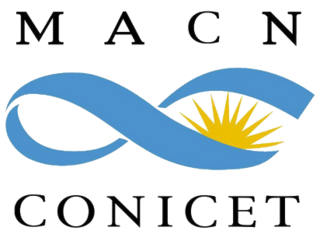
The Bernardino Rivadavia Natural Sciences Argentine Museum is a public museum located in the Caballito section of Buenos Aires, Argentina.
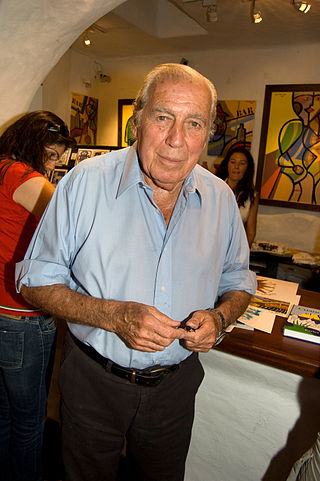
Carlos Páez Vilaró was a Uruguayan abstract artist, painter, potter, sculptor, muralist, writer, composer and constructor.
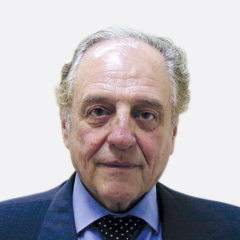
Carlos Heller is an Argentine executive, cooperative banking leader and politician, currently serving as member of the Argentine Chamber of Deputies, representing the Autonomous City of Buenos Aires, since 2019. He is the founder and president of the Solidary Party.
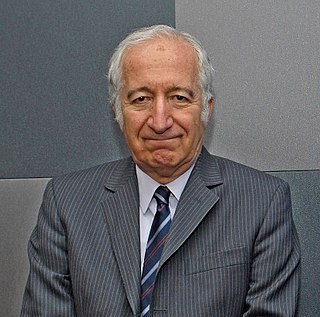
Bernardo Kliksberg is an Argentine Doctor of Economics, recognized around the world as the founder of a new discipline, social management, and a pioneer of development ethics, social capital and corporate social responsibility. His books, papers, advisory work, and research, applies an interdisciplinary approach integrating contributions of different social sciences.
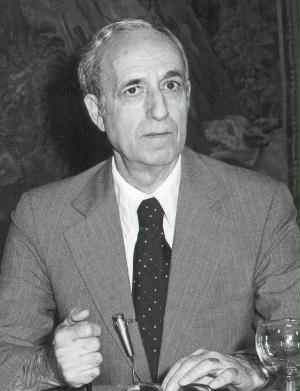
José María Ferrater Mora was a Spanish philosopher, essayist and writer. He is considered the most prominent Catalan philosopher of the 20th-century and was the author of over 35 books, including a four-volume Diccionario de filosofía and Being and Death: An Outline of Integrationist Philosophy (1962). Subjects he worked on include ontology, history of philosophy, metaphysics, anthropology, the philosophy of history and culture, epistemology, logic, philosophy of science, and ethics. He also directed several films.
Leandro Katz is an Argentine-born writer, visual artist and filmmaker known primarily for his films and photographic installations. His works include long-term, multi-media projects that delve into Latin American history through a combination of scholarly research, anthropology, photography, moving images and printed texts.

Mario Aurelio Poli is an Argentine prelate of the Catholic Church who was the Archbishop of Buenos Aires from 2013 to 2023. He was the Bishop of Santa Rosa from 2008 to 2013 and before that an auxiliary bishop in Buenos Aires from 2002 to 2008. Pope Francis, his predecessor in Buenos Aires, made him a cardinal in 2014.

Martha Alcira Salotti was an Argentine educator and writer. A specialist in children's literature, she was considered the protégé and inheritor of the pedagogical work of Rosario Vera Peñaloza.

The Faculty of Philosophy and Letters, also known as Filo, is a faculty of the University of Buenos Aires (UBA). The faculty was founded in 1896, making it one of the oldest faculties at the university. It offers graduate degrees in multiple subjects including philosophy, literature, anthropology, history, arts, education, geography, modern and classical languages, and literary editing, as well as post-graduate degrees at the magister, doctoral, and post-doctoral level.
